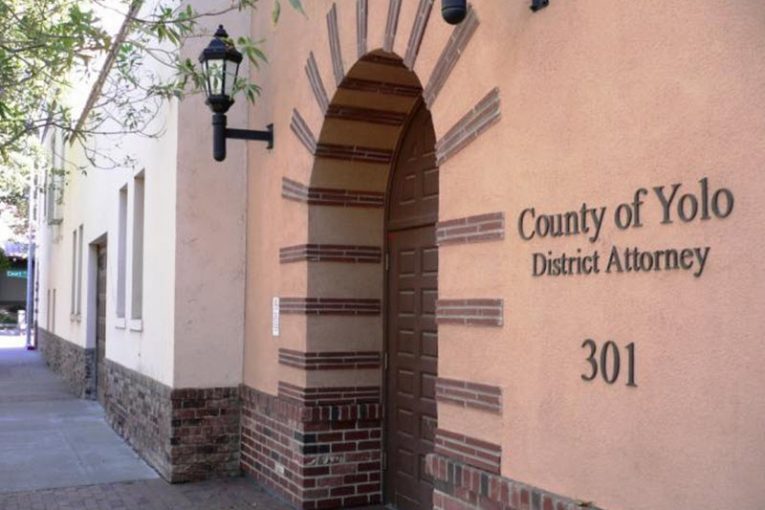

By David M. Greenwald
Executive Editor
Woodland, CA – Yolo County DA Jeff Reisig has done a masterful job of appointing himself as a moderate reformer ahead of a 2022 election where he figures to face former Public Defender Cynthia Rodriguez.
The media has dutifully reported on this *transformation* as the Bee did back in October where they noted that he recognizes that the criminal justice world has changed and that he needs to adapt with it.
“I’m not an ideologue,” said Reisig in an interview with the Sacramento Bee. “I’m not in the same category as hardcore progressives that are looking to fundamentally rip down the system and rebuild it. I view our job more as threading the needle of criminal justice reform and public safety at the same time.”
My problem is that the transformation has been more rhetoric and show than actual substance. On most issues he still comes down with the hard-on-crime folks like Ann Marie Schubert, the ongoing DA of Sacramento who is going to run for Attorney General.
This week it was Jeff Reisig joining Schubert and 27 other elected DAs to once  again block a modest criminal justice reform—a new credit calculation designed to lower second strike sentences.
again block a modest criminal justice reform—a new credit calculation designed to lower second strike sentences.
District Attorney Jeff Reisig added, “Violent crime has been steadily increasing across most of California. Promoting more early releases of prison inmates who have been convicted of heinous crimes or who have violent records, without any confirmation of rehabilitation, is not making anyone safer.
“Many of these so-called ‘nonviolent’ second-strikers have long and violent criminal histories – including repeat felony domestic violence convictions, sexual assaults and gun violence,” said District Attorney Anne Marie Schubert. “Releasing these dangerous inmates after serving a small fraction of their sentences not only lacks accountability, it shortens effective rehabilitation, violates victims’ rights and is a significant threat to public safety. No one is contesting good conduct credits for fire camp work, but sneaking in another class of individuals with serious and violent criminal histories goes too far.”
The position taken by DA Reisig once again clearly puts himself, not with other reformers, but with the tough-on-crime wing of California DAs.
In December, the Committee on Revision of the Penal Code completed their two-year report and recommended a repeal of the Three Strikes Law.
Said the group in their report, “The Three Strikes law has been applied inconsistently and disproportionately against people of color, and the crime-prevention effects the law aimed to achieve have not been realized.”
Nowhere has this been more true than in Sacramento and Yolo Counties.
That report found that Yolo County ranked as sixth in the state in terms of most people sentenced, either as a second or third strike. Sacramento was just behind Yolo at 8th on the list.
Yolo County is just better than Kern County and worse than San Diego and Sacramento. Compare that to the rhetoric of the Yolo DA.
The report concludes: “Given the discretion that prosecutors have to charge and judges have to dismiss Three Strikes enhancements, this data suggests a disturbing trend: when the criminal system has the option to punish more harshly, it does so disproportionately against people of color.
“Concerns that the law disproportionately impacted people of color began a few years after it was passed. People of color, particularly Black people, are arrested and prosecuted at disproportionate rates, and the Three Strikes law perpetuates these disparities by subjecting people to harsher penalties once they become justice-involved,” they continue.
They find, “While Black people account for less than 30% of the entire prison population, they account for 45% of people serving a third strike sentence.”
Not only is Three Strikes found to hit people of color disproportionately hard, even as compared to their share of the criminal legal system, but the data finds overall disparities in the criminal legal system.
Racial disparities: worst in the state is Kern, second worst, Sacramento.
Unfortunately, the report only looks at the 15 biggest counties, so that does not give us good data on Yolo County.
The two best—San Francisco and Contra Costa—have been led by progressive DAs. San Joaquin, also led by a reformer, is fifth best.
We know that Yolo County back in 2020 had a 28 percent Black jail population with an overall 3 percent of the population being Black. While Reisig disputed those figures, he has since released his own data to acknowledge racial disparities.
The Yolo DA has tried to sell us on some sort of moderate reformer—and he has done a really good job of selling that narrative. The problem is that once you drill down into actual data, his charging policies and output is not distinguishable from that of DAs like Ann Marie Schubert and the like.

